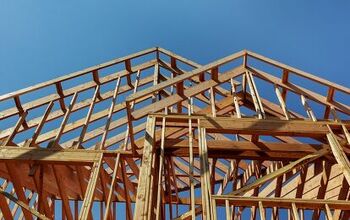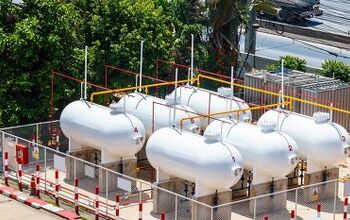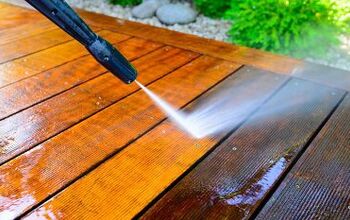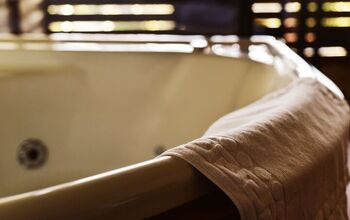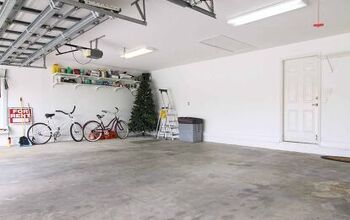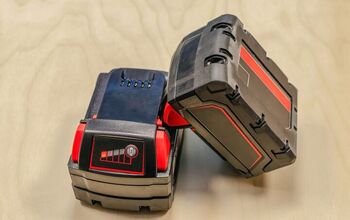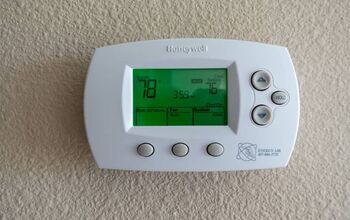Eight Tips To Get Settled Into A New House

The process of going through open houses, talking to realtors, and even buying a house is anything but fun. Sure, the result is great, but everything up until the moment you move in can be stressful. That includes getting settled into a new house, although with some planning, it doesn’t have to be difficult.
The best way to get settled into a new house is to make a checklist, clean the house, and unpack one room at a time. Transfer your utilities and get the locks changed before spending your first night in the new house. It’s also important to find smoke detectors, carbon monoxide detectors, water shutoff valves, and circuit breakers.
That way, you can easily label everything and deal with random emergencies, like leaks. Follow along as we highlight eight essential tips to get settled into a new house.
What To Do After Moving To A New House
Moving into a new house doesn’t come with an instruction manual. However, the process can either go smoothly or stress you out more than you anticipated. You can avoid that stress and comfortably get settled into a new house if you take a few simple steps, including:
1. Start With A Clean Slate
Moving into a new house typically means you’re moving into someone else’s old house. That is unless you build a brand-new house. Moving into someone else’s old house has some implications that can gross you out, even if you aren’t a germaphobe.
While the old homeowner probably cleaned the house before moving out, it may be hard to trust that they did as great of a job as you would have done. That’s why it’s important to clean your new house to help you feel settled.
You can even make it fun if you put on your favorite playlist and take breaks as needed. Doing so will also help you familiarize yourself with your new home and its nuances. That way, you can unpack your new belongings and set them on clean surfaces.
2. Familiarize Yourself With Important Features
While some things are located in the same spots as most homes, it varies. This includes smoke detectors, carbon monoxide detectors, circuit breakers, and plumbing connections. It’s important to know where these things are before you get settled into your new house.
Doing so makes it easy to deal with repairs and emergencies, such as leaks. Knowing where your water shutoff valve is can save you a fortune in repairs if you get to your water shutoff valve fast enough. You may have asked the previous homeowner where all these important devices and fixtures are.
However, a lot has probably happened since then, so it’s worth checking everything out when you move in. Make a checklist of important devices, fixtures, plumbing connections, and ground fault circuit interrupters to know where everything is. This can also help you figure out the perfect layout for your new home.
3. Transfer Utilities
Ideally, you should have transferred your utilities before moving in. However, this isn’t always easy if you have a lot going on and have to deal with other responsibilities. In that case, you must transfer your utilities before you get settled into your new house.
The last thing you want is for the water or power company to shut off your utilities while you’re unpacking. Today, transferring utilities is easier than ever as some providers let you make the request online. However, you may simply need to call the office and set up a new account.
It’s much easier if you can simply transfer your existing account to a new house. That said, it isn’t always possible if you’re moving to a distant city or state. While you’re at it, you must also change your address via USPS, which can be done online.
4. Unpack Room By Room
Unpacking can be stressful if you approach it without a plan. However, that doesn’t need to be the case, and a little planning can make it much easier. The best way to get settled into a new house without stress is to create an unpacking plan.
Focus on one room at a time, so you can watch each room come to life. Otherwise, you may overwhelm yourself with a bunch of half-assembled rooms. That can make unpacking feel like a much bigger undertaking than it is.
If possible, wait to move on to another room until you’re done. This also makes decorating and arranging rooms much easier. Pick a staging area for some of your miscellaneous boxes that you don’t know what to do with, and wait to unpack them until after you've done a few rooms.
5. Focus On Security
Security is the last thing you want to worry about while getting settled into a new house. However, it’s necessary, as you may understandably feel vulnerable after moving. After all, someone else lived there not long ago, and they left you with their old locks and alarm system.
First, you must call a locksmith to change or replace your locks. It’s also worth seeing whether you should reprogram the alarm system or replace it altogether. Replace the alarm system if it’s not up to your safety standards, so you can enjoy peace of mind.
Some homeowners even install Ring video doorbells and security cameras after moving. That is a good idea, as it can deter burglars and show them you’re not a good target.
6. Explore The Area
There’s a good chance that you’ll have to run out to buy some essentials while unpacking and setting up your new house. This is the perfect opportunity to drive around and get a lay of the land in your new town. Make Google searches like “grocery stores near me” and “local restaurants” to learn more about what’s in the area.
You’ll also naturally find new stores, pharmacies, and restaurants by driving and walking around. Exploring the area can make you feel much more comfortable at home. That’s especially true for long-distance moves, which can be overwhelming.
7. Stock Up On Essentials
Now that you have a lay of the land, you must stock up on essentials. That’s especially true if you moved without any perishable foods, which is quite common. Stock up on toiletries, food, cleaning supplies, and even new furniture.
Many homeowners also run out to buy hardware, such as screws and nails, while settling into a new house. It’s a great idea to get a surplus of food and hardware, so you don’t have to keep running errands. Stocking up on food can also ensure you don’t spend a fortune on fast food after moving.
8. Introduce Yourself To Your Neighbors
Things can get a little bit awkward if you go too long without meeting your neighbors. It can create the impression that you don’t want anything to do with them, and even that is fine. After all, you’re not obligated to make new friends, but it’s a great idea to meet them.
This can break the ice and help you get an idea of the vibe in the neighborhood. Granted, you don’t have to introduce yourself to everyone on the block. However, it’s worth meeting your neighbors across the street and next door.
Having a relationship with your neighbors can make you feel more secure in the neighborhood. They can keep an eye on your house when you’re gone and watch for suspicious behavior. It also comes in handy if you need someone to water your plants or watch your pets while you’re on vacation.
Summing It Up
Deep clean the surfaces in your new home before getting settled, then carefully organize your belongings. Next, pick a room to start with, and unpack each room one at a time to avoid burnout and messes. Explore the neighborhood, meet your neighbors, change your locks, and invest in a home security system for your new house.
Related Guides:

Nick Durante is a professional writer with a primary focus on home improvement. When he is not writing about home improvement or taking on projects around the house, he likes to read and create art. He is always looking towards the newest trends in home improvement.
More by Nick Durante











![10 Best Zero Turn Mowers – [2022 Reviews & Ultimate Buyer's Guide]](https://cdn-fastly.upgradedhome.com/media/2023/07/31/9070522/10-best-zero-turn-mowers-2022-reviews-ultimate-buyer-s-guide.jpg?size=350x220)

